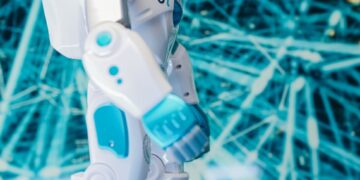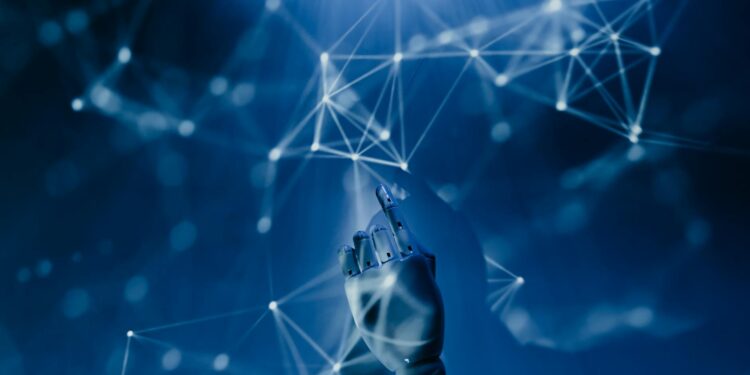The landscape of technology is undergoing an unprecedented transformation, with Artificial Intelligence (AI) emerging as the undeniable protagonist. Far from being a futuristic concept, AI has already deeply permeated our daily routines, subtly enhancing everything from the smartphones in our pockets to the recommendations shaping our online experiences. Yet, its influence extends profoundly beyond personal convenience, fundamentally reshaping established industries and catalyzing entirely new paradigms of innovation. This accelerating impact is not merely a transient trend but the defining narrative of our technological era. From optimizing complex supply chains to revolutionizing medical diagnostics, AI’s pervasive presence demands our attention, understanding, and strategic adaptation, as its trajectory promises to redefine the very fabric of how we live and work.
The silent revolution in our daily lives
AI’s initial foray into our world wasn’t always heralded with fanfare; instead, it often arrived as a quiet enhancement, seamlessly integrating into tools we already use. Consider the smartphone: AI powers the sophisticated facial recognition unlocking your device, refines your photos to near-perfection, and predicts your next word as you type. Voice assistants like Siri or Alexa have transformed how we interact with technology, moving from touch to natural language, streamlining tasks from setting alarms to playing music. Beyond these obvious examples, AI is at work in personalized recommendations on streaming services, spam filters guarding your inbox, and the navigation apps guiding your commute. These aren’t just convenient features; they represent AI’s capacity to learn from our data, anticipate our needs, and optimize our interactions, making our daily lives demonstrably more efficient and tailored without us often realizing the complex algorithms operating beneath the surface.
Reshaping industries: from automation to profound innovation
While AI subtly improves our personal tools, its industrial impact is anything but understated. Entire sectors are being fundamentally reimagined, moving beyond mere automation to embrace transformative innovation. In manufacturing, AI-powered robotics perform intricate tasks with unparalleled precision, while predictive maintenance systems analyze machine data to prevent costly breakdowns before they occur. Healthcare is experiencing a revolution, with AI assisting in early disease detection through advanced image analysis, accelerating drug discovery by sifting through vast genomic data, and personalizing treatment plans for individual patients. The financial sector leverages AI for sophisticated fraud detection, algorithmic trading, and hyper-personalized customer service through chatbots. Retail benefits from AI-driven supply chain optimization, demand forecasting, and highly targeted marketing campaigns. This isn’t just about cutting costs; it’s about unlocking new capabilities, driving efficiency, and creating services and products that were previously unimaginable, fundamentally altering competitive landscapes.
The engine of economic growth and competitive advantage
AI is more than a technological advancement; it’s a potent driver of economic growth and a critical determinant of competitive advantage in the global market. Companies that effectively integrate AI into their operations are seeing significant boosts in productivity, reduced operational costs, and the ability to innovate at an accelerated pace. This translates into stronger market positions and increased profitability. Moreover, AI is fostering the creation of entirely new industries and job categories, even as it automates existing ones. The demand for AI researchers, data scientists, machine learning engineers, and AI ethicists is skyrocketing, underscoring a significant shift in the skills required for the modern workforce. Investment in AI technologies is surging globally, reflecting its recognized potential to fuel future economic expansion and technological leadership.
| Year | Estimated Market Size (USD Billion) | Year-over-Year Growth (%) |
|---|---|---|
| 2023 | 200 | – |
| 2025 | 400 | 100 |
| 2027 | 800 | 100 |
| Source: Illustrative projections based on industry trends. | ||
Navigating the future: challenges and ethical considerations
While AI’s benefits are immense, its rapid proliferation also brings forth significant challenges and ethical considerations that demand careful attention. The potential for job displacement due to automation is a pressing concern, necessitating investment in reskilling and upskilling programs to ensure a smooth transition for the workforce. Ethical dilemmas surrounding AI are equally critical, including issues of algorithmic bias, where AI systems can perpetuate and even amplify societal inequalities if trained on biased data. Questions of privacy and data security are paramount, given AI’s reliance on vast datasets. Furthermore, the responsible development and deployment of AI require robust regulatory frameworks to prevent misuse and ensure accountability. Addressing these challenges proactively, through thoughtful policy, ethical design, and ongoing public discourse, is crucial to harnessing AI’s power for collective good and avoiding unintended negative consequences.
In summary, the pervasive and accelerating influence of Artificial Intelligence is undeniably the defining narrative of contemporary technology. We’ve explored how AI has subtly revolutionized our daily tools, making our lives more efficient and personalized, often without explicit awareness. Beyond personal convenience, AI is fundamentally reshaping entire industries, driving unprecedented levels of automation, innovation, and efficiency across sectors like healthcare, finance, and manufacturing. This widespread adoption is acting as a powerful engine for economic growth, creating new opportunities and demanding a shift in global competitive strategies. However, its transformative power also presents critical challenges, including job displacement and profound ethical considerations regarding bias, privacy, and accountability. The final conclusion is clear: AI is not merely an optional upgrade but an inescapable force that will continue to redefine our world. Adapting, understanding, and engaging with AI responsibly are no longer choices but necessities for individuals, businesses, and societies to thrive in this rapidly evolving technological landscape.


















